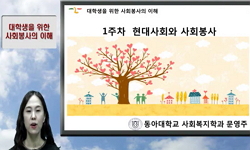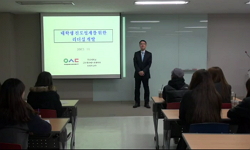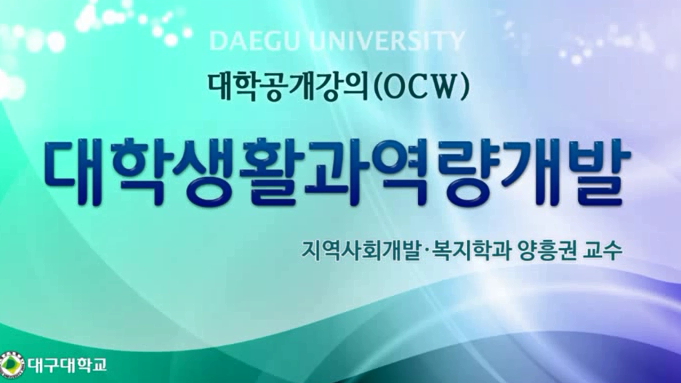This study analyzes the Park Chung-Hee Regime`s awareness of the peasant war and that of university students who stood against the government in the 1960s through the 1970s, when public interest in the Donghak Peasant War had spread, and seeks to unde...
http://chineseinput.net/에서 pinyin(병음)방식으로 중국어를 변환할 수 있습니다.
변환된 중국어를 복사하여 사용하시면 됩니다.
- 中文 을 입력하시려면 zhongwen을 입력하시고 space를누르시면됩니다.
- 北京 을 입력하시려면 beijing을 입력하시고 space를 누르시면 됩니다.

1960∼70년대 박정희 정권과 대학생의 `동학농민전쟁` 인식 = The Park Chung-Hee Regime`s and University Students` Awareness of the “Donghak Peasant War” in the 1960s and `70s
한글로보기https://www.riss.kr/link?id=A103058602
- 저자
- 발행기관
- 학술지명
- 권호사항
-
발행연도
2015
-
작성언어
-
-
주제어
동학농민전쟁 ; 박정희 정권 ; 대학생 ; 근대화 ; 반봉건 ; 반제국주의 ; 계보 ; Donghak Peasant War ; Park Chung-Hee Regime ; University Students ; Modernization ; Anti-feudalism ; Anti-imperialism ; Genealogy
-
KDC
900
-
등재정보
KCI등재
-
자료형태
학술저널
- 발행기관 URL
-
수록면
175-217(43쪽)
-
KCI 피인용횟수
6
- 제공처
-
0
상세조회 -
0
다운로드
부가정보
다국어 초록 (Multilingual Abstract)

This study analyzes the Park Chung-Hee Regime`s awareness of the peasant war and that of university students who stood against the government in the 1960s through the 1970s, when public interest in the Donghak Peasant War had spread, and seeks to understand the awareness of the peasant war during this time. There are similarities and differences between the Park Chung-Hee Regime`s awareness and university students` awareness of the Donghak Peasant War; the similarities include that both were aware of the peasant war in its goal of “modernization” and attempted to be hierarchically aware of that in its relationship with other cases. In this process, the characteristics of the peasant war were defined as anti-feudalism and anti-imperialism. In addition, both the Park Chung-Hee Regime and university students interpreted the people`s experience and consciousness as the framework of the modern progressive narrative they made, so they could not be aware of the autonomous world of the people. However, the differences in emphasis between the Park Chung-Hee Regime and university students on anti-feudalism and anti-imperialism brought about a crack in the dominant discourses of “modernization of the fatherland” and “national identity”, which became the background to spark a major social movement in specific aspects such as the conclusion of the treaty between Korea and Japan. In addi tion, in the process of connecting the peasant war with other events hierarchically, the Park Chung-Hee Regime put “the leader” first while university students put “the people” first; this was closely connected to the dominant logic and resistant logic.
참고문헌 (Reference)
1 "(69도 1912호)상고이유서-피고인 노인영, 박경호", "「(69도 1912호) 상고이유서-피고인 노인영, 박경호」, 한승헌변호사 변론사건실록 1"
2 "「(69노 201호) 항소이유서-피고인 노인영, 허정길, 박경호」, 한승헌변호사 변론사건실록 1"
3 배항섭, "한우근의 동학농민전쟁 연구가 남긴 학문적 유산" 진단학회 (120) : 217-240, 2014
4 (사)정읍동학농민혁명계승사업회, "최현식과 동학농민혁명사 연구" 갈채 2006
5 "장주효 구술(구술일 : 2013. 9. 2, 면담자 : 신동호, 주관 : 민주화운동기념사업회)"
6 "이관영 구술(고려대 민주동우회 편, 고대학생운동 I-구술사료집 , 민맥, 2009)"
7 박정희, "우리민족의 나갈 길-사회재건의 이념" 동아출판사 1962
8 박명규, "역사적 경험의 재해석과 상징화-동학농민전쟁의 기념물" 51 : 1997
9 서울대 문리과대학 문우회, "신입생 및 진입생 여러분을 환영하며"
10 전지니, "식민지 시기 역사극의 동학농민운동 형상화 방식 연구" 한국드라마학회 (32) : 145-180, 2010
1 "(69도 1912호)상고이유서-피고인 노인영, 박경호", "「(69도 1912호) 상고이유서-피고인 노인영, 박경호」, 한승헌변호사 변론사건실록 1"
2 "「(69노 201호) 항소이유서-피고인 노인영, 허정길, 박경호」, 한승헌변호사 변론사건실록 1"
3 배항섭, "한우근의 동학농민전쟁 연구가 남긴 학문적 유산" 진단학회 (120) : 217-240, 2014
4 (사)정읍동학농민혁명계승사업회, "최현식과 동학농민혁명사 연구" 갈채 2006
5 "장주효 구술(구술일 : 2013. 9. 2, 면담자 : 신동호, 주관 : 민주화운동기념사업회)"
6 "이관영 구술(고려대 민주동우회 편, 고대학생운동 I-구술사료집 , 민맥, 2009)"
7 박정희, "우리민족의 나갈 길-사회재건의 이념" 동아출판사 1962
8 박명규, "역사적 경험의 재해석과 상징화-동학농민전쟁의 기념물" 51 : 1997
9 서울대 문리과대학 문우회, "신입생 및 진입생 여러분을 환영하며"
10 전지니, "식민지 시기 역사극의 동학농민운동 형상화 방식 연구" 한국드라마학회 (32) : 145-180, 2010
11 "손정박 구술(구술일 : 2013. 9. 16, 면담자 : 신동호, 주관 : 민주화운동기념사업회)"
12 전국대학생연맹, "백서"
13 은정태, "박정희시대 성역화사업 추이와 성격" 15 : 2005
14 "박정희대통령 연설문집 2"
15 전인권, "박정희 평전" 이학사 2006
16 황병주, "박정희 체제의 지배담론 : 근대화 담론을 중심으로" 한양대학교 대학원 2008
17 박정희, "민족의 저력" 광명출판사 1971
18 이진영, "동학농민혁명 인식의 변화와 과제" 9․10 : 2001
19 박준성, "동학농민혁명 기념사업의 역사" 동학농민혁명기념재단 2009
20 "동아일보"
21 "동대신문"
22 김영래, "당신의 조국 한국을 알자-연세대학교 학생운동사" 디컨하우스 2003
23 김선경, "농민전쟁 100년의 인식과 쟁점" 거름 1994
24 박정희, "나의 어린시절"
25 정종현, "국민국가와 '화랑도': 애국계몽기-대한민국 건국기의 '화랑' 담론과 활용양상을 중심으로" 한국학중앙연구원 29 (29): 179-206, 2006
26 서울대 문리과대학 학생총회, "구국투쟁선언문"
27 서울대 총학생회, "교련철폐투쟁선언"
28 "경향신문"
29 한국대학신문기자협회, "‘반식민주의의 날’ 제정 건의문"
30 "http://www.mtong.kr/read.php3?aid=13254556198519s2"
31 서울대 문리과대학 학생회, "4․19 제9선언문"
32 오제연, "1970년대 대학문화의 형성과 학생운동―‘청년문화’와 ‘민속’을 중심으로" 역사문제연구소 16 (16): 81-117, 2012
33 오제연, "1960∼1971년 대학 학생운동 연구" 서울대학교 대학원 2014
34 배항섭, "1920-30년대 새로운 ‘동학농민전쟁상’의 형성" 수선사학회 (36) : 179-208, 2010
35 홍동현, "1894년 동학농민전쟁에 대한 문명론적 인식의 형성과 성격" 역사문제연구소 15 (15): 147-169, 2011
36 한우근, "(서평)한국사 현대편" 23 : 1964
37 김영탁, "(공화논총 제1집) 이념과 정책" 민주공화당 1964
동일학술지(권/호) 다른 논문
-
1920∼30년대 조선총독부의 `내선결혼(內鮮結婚)` 선전과 현실
- 역사문제연구소
- 이정선 ( Lee Jeong Seon )
- 2015
- KCI등재
-
가족이 짊어진 구호와 자활 : 1950∼60년대 합동결혼과 그 주인공
- 역사문제연구소
- 김아람 ( Kim A Ram )
- 2015
- KCI등재
-
1950∼60년대 `가정의 재건`과 일부일처법률혼의 확산 : 한국가정법률상담소의 활동을 중심으로
- 역사문제연구소
- 소현숙 ( So Hyun Soog )
- 2015
- KCI등재
-
- 역사문제연구소
- 최선웅 ( Choi Sun Woong )
- 2015
- KCI등재
분석정보
인용정보 인용지수 설명보기
학술지 이력
| 연월일 | 이력구분 | 이력상세 | 등재구분 |
|---|---|---|---|
| 2027 | 평가예정 | 재인증평가 신청대상 (재인증) | |
| 2021-01-01 | 평가 | 등재학술지 유지 (재인증) |  |
| 2018-01-01 | 평가 | 등재학술지 유지 (등재유지) |  |
| 2015-01-01 | 평가 | 등재학술지 유지 (등재유지) |  |
| 2011-01-01 | 평가 | 등재학술지 선정 (등재후보2차) |  |
| 2010-01-01 | 평가 | 등재후보 1차 PASS (등재후보1차) |  |
| 2008-01-01 | 평가 | 등재후보학술지 선정 (신규평가) |  |
학술지 인용정보
| 기준연도 | WOS-KCI 통합IF(2년) | KCIF(2년) | KCIF(3년) |
|---|---|---|---|
| 2016 | 1.12 | 1.12 | 1.12 |
| KCIF(4년) | KCIF(5년) | 중심성지수(3년) | 즉시성지수 |
| 1.04 | 1.06 | 1.812 | 0.43 |




 KISS
KISS






